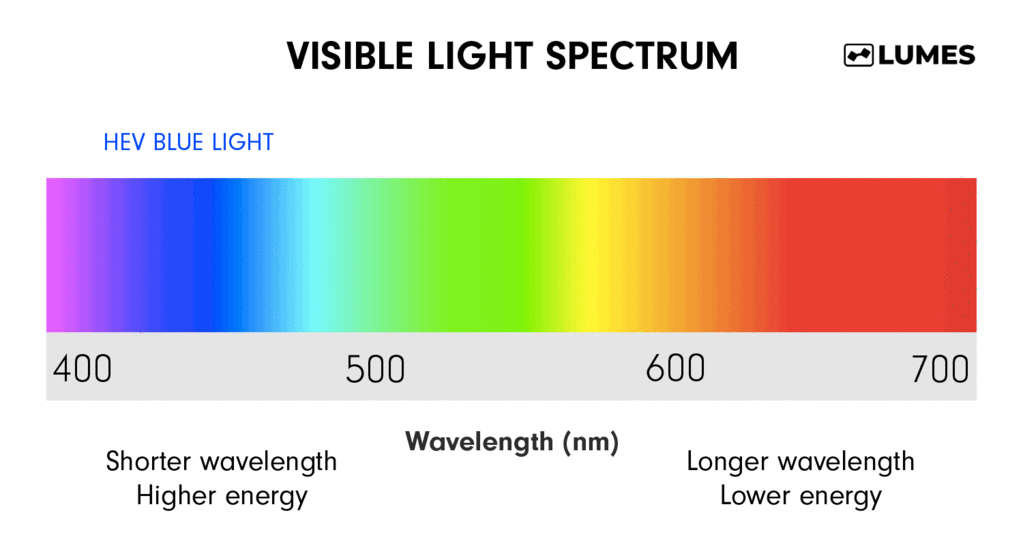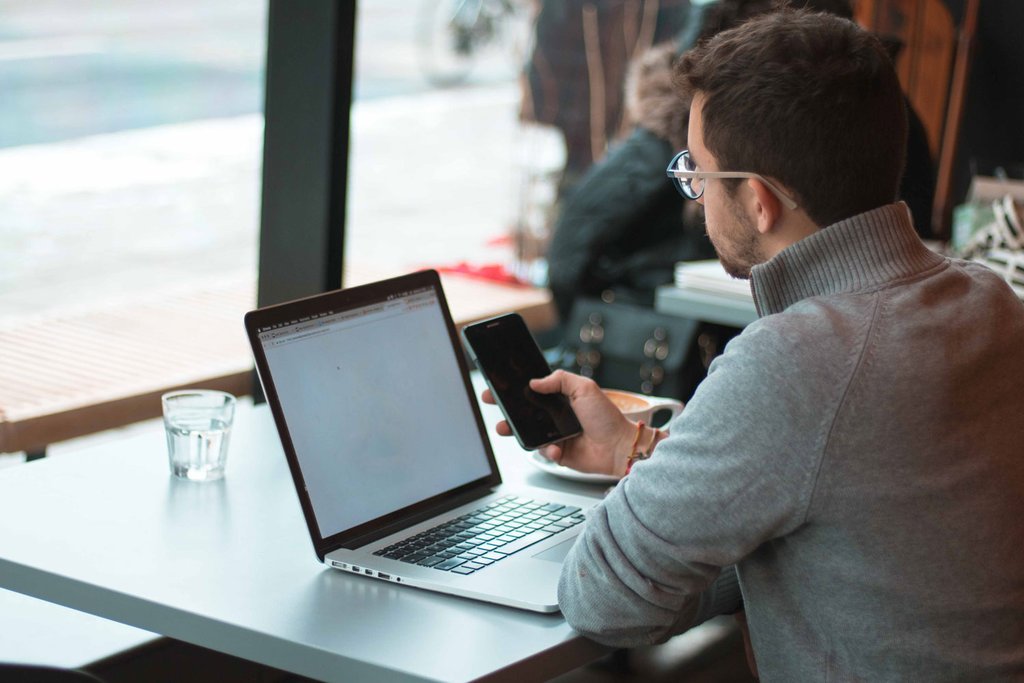‘Blue light blocking glasses’, ‘blue blockers ’or ‘computer glasses’.
You’ve heard of them, or maybe seen someone in your office wearing them, but you’re still not quite sure what they are or how they work.
Good news, you’ve come to the right place.
In this article, I’ll guide you through exactly what blue light blocking glasses are and how they can benefit you.
Why would you want to block blue light?
So, blue light blocking glasses block blue light.
But what is blue light and why would you want to block it?
Light is measured in wavelength, the units of which are nanometers (nm) and millimetres (mm).

Visible light has a wavelength range in the region of 400 to 760nm, with high energy visible (HEV) light falling somewhere between 400 – 500nm.
It’s called high energy visible light because the blue/violet band of the visible spectrum has a particularly high frequency.
In today’s world, there are an increasing amount of artificial sources of blue light and we interact with many of them on a daily basis. Think digital display screens on laptops, tablets and smartphones.
Blue light is also nature’s way of telling us we need to wake up, for example, during sunrise.
That’s why studies have also found that blue light exposure before bed can disrupt your circadian rhythm leading to poorer quality sleep.
How do blue light blocking glasses work?
Blue light blocking glasses have filters in their lenses that block or absorb a percentage of blue light from reaching your eyes.
That means if you use these glasses when looking at a screen, they can help reduce your exposure to blue light waves that can irritate your eyes or keep you awake.
Depending on their quality and design, some blue light blocking glasses can also help to reduce eye strain.
You can wear blue light blocking glasses during the day while working in front of a computer to prevent eye strain.
They can also prevent the blue light from screens from keeping you awake if you’re looking at screens in the evening .
Our eyes aren’t very good at blocking blue light
One of the important things to realize is that our eyes weren’t designed to view screens at close proximity for extended periods of time.
Research by the AOA suggests that prolonged exposure to blue light may damage your retina—the inner part of your eye that sends signals to your brain to process what you are seeing.
Why do blue light blocking glasses have yellow / orange lenses?
To understand this question, let’s have a quick recap about how light and color works.
A red t-shirt looks red because the dye molecules in the fabric have absorbed the wavelengths of light from the violet/blue end of the spectrum. Red light is the only light that is reflected from the shirt.
An object that reflects all frequencies will appear white. An object that absorbs all light will appear black—this is why you feel warmer when you wear a black shirt on a hot summer’s day.
Blue light blocking glasses often have slightly tinted lenses so they can filter out the HEV light frequencies. Generally speaking, when the lenses are more orange a higher percentage of blue light is filtered out.
It’s important to remember that our bodies actually need some blue light to keep us awake. That’s why blue light blocking glasses with clearer lenses can be a smart choice to find the right balance.
In fact, if you’re really curious, we’ve written a whole article on how blue light blocking lenses work here.
Do I need blue light blocking glasses?
Do you regularly use digital screens? Do you ever suffer with eye strain? Do ever have trouble sleeping after using technology?
If you only suffer with eye strain, you can try the 20-20-20 rule before investing in a pair of blue light blocking glasses. It can help you rest your eyes during prolonged screen time by taking regular breaks.
Likewise, if sleep is your main problem you might want to try other methods to promote healthy sleep. Meditation may help you calm your mind so you can fall asleep more easily. And, try not to use screens directly before bed.
Regardless, blue light blocking glasses may help with both issues if you use a screen regularly.


